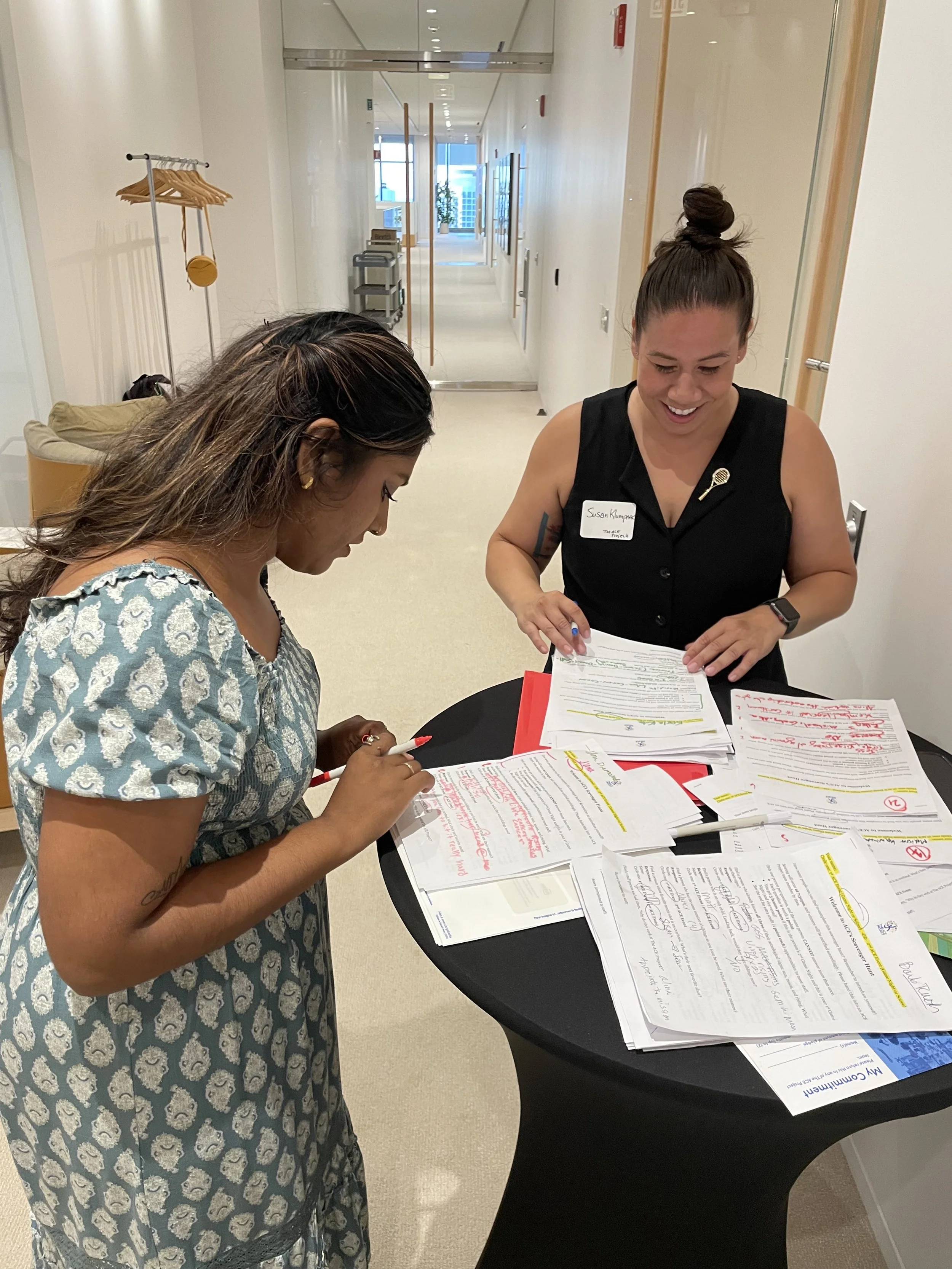Finding Community in Unexpected Places
In 2021, The ACE Project began partnering with the Field Department of the University of Chicago Crown School of Social Work, which manages internship placements for Master’s-level students. Over the past four years, this partnership allowed us to explore new staffing strategies for administration and fundraising while also improving upon our program model.
We’ve also welcomed interns with different academic focuses, including business and marketing, who worked alongside staff and board members to offer fresh perspectives and actionable recommendations.
Most recently, Alina Popatia completed her internship and shared her reflections on the experience, which we’re excited to share with you:
When I began my MSW program at the University of Chicago Crown School, I had no idea that my first-year internship would shape so much of my professional path. At the time, I was working in a toxic pediatric therapy clinic, providing direct services to children and their families. I needed a change, a chance to step away from an unhealthy workplace and into something that could challenge me in new and meaningful ways.
I was also in a place of uncertainty. Having just graduated with degrees in psychology and history, as well as an Illinois teaching license, I thought my future lay in education. I imagined I might someday start my own nonprofit, but I had not yet realized that social work would become my profession. When I was placed at The ACE Project, I leaned into the idea that everything happens for a reason. Even though I had no experience in case management and no knowledge of tennis, I trusted that I would gain skills that would serve me well in the future.
As the internship unfolded, the theme that came up again and again for me was community. For one of my first professional experiences outside of corporate America, The ACE Project showed me what community-based work could look like. It was not hierarchical or extractive. Instead, it was collective and participatory, a model of working with people, for people. One of my most memorable experiences was participating in leadership team meetings and the December staff training. In these spaces, the organization felt less like a vertical hierarchy and more like a horizontal network of people committed to one another.
Community-based work was not without its challenges. Nonprofit work carries many of the same pressures as corporate America, but with fewer resources and less structure. Projects that seemed straightforward, like starting a community garden or developing safety policies, required enormous coordination and patience. Yet those challenges forced me to grow. I had to practice confidence, boundary-setting, communication, and self-respect, all while working in an environment that valued anti-oppressive practice over hierarchy.
More than any single project, what I gained as an intern was a new understanding of my own capacity. I discovered that my contributions were not secondary. Even as an intern, I could step into leadership, create structures, and add value that mattered. Looking back, I am grateful that I trusted the placement process and leaned into the uncertainty. I did not know at the time that The ACE Project would give me more than professional skills. It gave me community, the courage to step into my own voice, and a model of how to balance flexibility with accountability, humility with leadership, and structure with collaboration.
Special thanks to all our interns over the years: Lindsay Noyed, Alina Popatia, Mila Rao, Emily Steffen (UChi Crown School for Social Work), Kara Lyons and Alyson Peyton Perkins (Northwestern University Kellogg School of Management), and Shayan Salemizadeh, Aanchal Khanna, Jameel Ahmed, Shuang Mao, and Jeff (JAM) Molgano (UChi Booth Social Impact).


